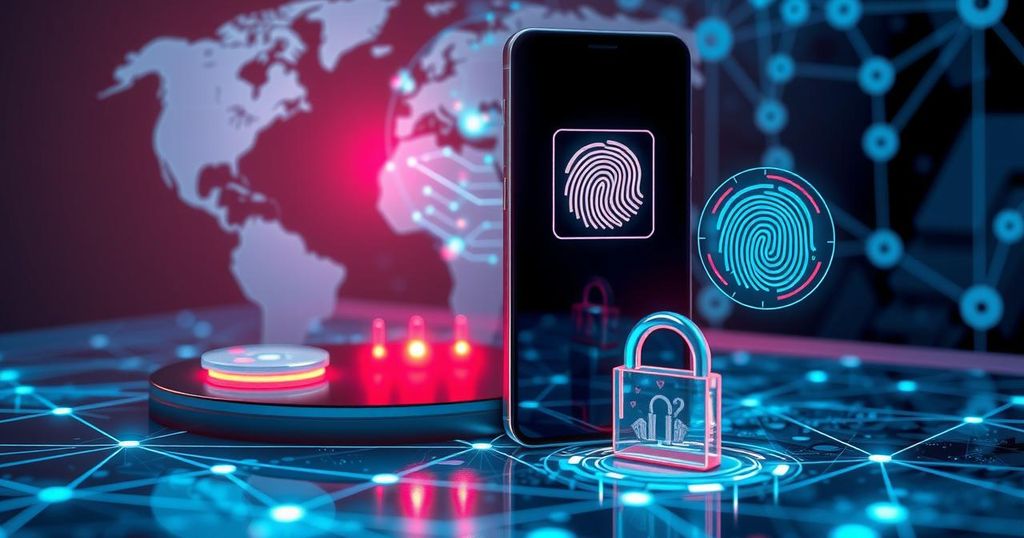Checkin.com partners with Ooredoo to implement biometric authentication to streamline customer onboarding and enhance compliance in telecommunications. This collaboration aligns with a global trend of adopting biometrics to combat fraud and meet regulatory requirements in the industry. As countries adopt strict identity verification measures, similar partnerships may emerge, reinforcing the move towards secure telecom practices.
Checkin.com has formed a strategic partnership with Ooredoo, a multinational telecommunications operator based in Qatar, to implement biometric authentication solutions. Ooredoo will utilize Checkin.com’s technology solutions, such as ID scanning and facial recognition, to streamline the customer identification process across its operations in regions including the Middle East and Southeast Asia. This initiative is aimed at enhancing the user experience by reducing friction in the customer onboarding process while ensuring compliance with identity verification regulations.
Michelle Roswall, head of sales at Checkin.com, noted that the telecommunications industry is responding to increasing regulatory demands regarding customer identification for SIM card users. This partnership seeks to facilitate faster customer registration while combating fraud through the application of AI-driven biometric authentication technologies. The collaboration also emphasizes adherence to local and international identity verification standards, crucial in maintaining regulatory compliance.
Ooredoo’s CTO, Essa Haider, highlighted the aim of leveraging advanced technology to improve the onboarding process, accommodating a variety of global identification methods. The rising trend of biometric verification amongst telecom companies is becoming evident, with multiple nations implementing similar measures to mitigate mobile fraud. Countries like Indonesia, Nigeria, and Nigeria are increasingly adopting biometric SIM registration as a response to the proliferation of telecommunications fraud.
In Chile, regulatory bodies announced mandatory biometric verification protocols for all telecom service contracts to enhance consumer protection against fraud. Official guidance mandates the use of fingerprints, facial recognition, or electronic signatures to verify the identity of the account holder during service registration. Claudio Araya, Telecommunications Undersecretary, affirmed that these measures must be followed to safeguard users’ personal information in the telecommunications sector.
Reports suggest that identity theft accounts for a significant percentage of fraud cases in Latin America, especially as digital transactions escalate. At the upcoming America Digital Congress of AI, Business, and Technology 2025, participants will have the chance to explore biometric solutions designed to address the challenges posed by data protection laws and fraud prevention. Companies like Sovos are adopting these advancements, having acquired TOC Biometrics for enhanced customer onboarding capabilities.
In India, mandatory Aadhaar-based biometric verification for new SIM card activations has been authorized to curb fraudulent activities. This new requirement further emphasizes the seriousness of combating cybercrime through effective identification methods. In Thailand, the proposed legislation also mandates the integration of biometric verification into SIM card registration processes, aiming to mirror successful measures seen in banking apps and guard against fraudulent registration practices.
The implementation of biometric authentication in the telecommunications sector is gaining momentum worldwide due to increasing regulatory pressures and the need for enhanced security measures. Telecommunications companies are recognizing that traditional methods of identity verification are being challenged by the rise of mobile fraud, necessitating a shift to advanced biometric solutions. This trend reflects broader concerns about identity theft and the misuse of personal data, particularly as digital transactions continue to grow in frequency. Countries globally are responding to these challenges by establishing regulations that require biometric verification for customer onboarding and service registration. As a response to these industry trends, Checkin.com and Ooredoo’s partnership signifies a proactive approach to integrating biometric technologies in telecom services, prioritizing user experience while addressing compliance and fraud concerns. The global move towards more robust identity verification systems highlights the importance of using technology to enhance both security and regulatory adherence.
The collaboration between Checkin.com and Ooredoo exemplifies a significant shift towards biometric authentication in telecommunications, driven by regulatory compliance and the need to combat fraud. As various countries implement similar measures to enhance identity verification, the adoption of biometric solutions aims to streamline customer onboarding processes, safeguard personal data, and ensure a secure telecom environment. This trend underscores the vital role of technology in meeting regulatory demands while enhancing consumer trust and security in digital transactions.
Original Source: www.biometricupdate.com





